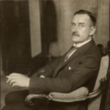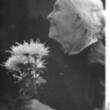Our Philosopher
(Libby/OverDrive eBook, Kindle)
Available Platforms
Description
More Details
Also in this Series
Published Reviews
Publisher's Weekly Review
Hofmann (1931--1993) explores terrifying and timeless questions through the gaze of youth in this probing 1986 novel (after The Parable of the Blind). Hans, a German child in the late 1930s, knows that Herr Veilchenfeld is an elderly philosopher and professor emeritus living in his central German town whom his father, the town's doctor, visits regularly, both to check on his heart condition and to tend to the wounds sometimes inflicted on him by rowdy town drunks. Hans also knows that his parents talk about Herr Veilchenfeld constantly, discussing both what is being done to him by the town and what he is doing to make it even harder for himself. As the drama of this hyperlocal persecution plays out in the background, Hans runs around the pond with his sister, begs for ice cream, and interjects questions about Herr Veilchenfeld: " loses his self-control and shouts at us that we shouldn't ask so much. And think, I ask. May I think about him?" As he comes to understand that something is not right with his kindly, mysterious neighbor--and that something has shifted in the world during this time of great political and social upheaval--Hans experiences a private and deeply moving coming-of-age. The result is a delicate tale of innocence unknowingly lost. (Sept.)
Kirkus Book Review
This unsettling tale concerns the persecution of one man in pre--World War II Germany. Herr Veilchenfeld, a philosopher in his 60s, comes to a small town after apparently having been forced to leave his university position. He finds that "instead of talking to him, people hurry by him silently." Someone breaks a window in a home he's visiting. Young men beat him up on the street, then take him to a group of older men who shave his head. Someone pees in the milk bottle delivered to his door. Another group invades his home and trashes his library. When he tries to move elsewhere, the town bureaucracy ties up his paperwork and finally shreds his passport, declaring him a noncitizen. Hofmann never explicitly says why all this is happening. But he was a German writer (1931-1993) for whom some history is inescapable, even for a book first published in 1986, 50 years after Veilchenfeld arrived in the town, even when the crime is not mass slaughter but the slow destruction of one person over three years. Hofmann never uses the words Jew, Nazi, Hitler, or brownshirt, as noted in the introduction by his son, the poet and translator Michael Hofmann. The full name of Bernhard Israel Veilchenfeld comes only on Page 51 and the last year of the action, 1938, on Page 99. Hofmann tells his story through the voice of a boy who has no sense of what he's witnessing. The author surrounds his philosopher with mostly nondescript townspeople who abet, approve, or only quietly, and rarely, censure. Veilchenfeld exists and suffers in nearly total isolation--as a man in a small town, as a human in history. The author's notions of complicity aren't original, but they have an unusual force in his understated style and its clear translation, as does the implicit suggestion that the reader take a moment to multiply this victim by millions. A painful, powerful work. Copyright (c) Kirkus Reviews, used with permission.
Publishers Weekly Reviews
Hofmann (1931–1993) explores terrifying and timeless questions through the gaze of youth in this probing 1986 novel (after The Parable of the Blind). Hans, a German child in the late 1930s, knows that Herr Veilchenfeld is an elderly philosopher and professor emeritus living in his central German town whom his father, the town's doctor, visits regularly, both to check on his heart condition and to tend to the wounds sometimes inflicted on him by rowdy town drunks. Hans also knows that his parents talk about Herr Veilchenfeld constantly, discussing both what is being done to him by the town and what he is doing to make it even harder for himself. As the drama of this hyperlocal persecution plays out in the background, Hans runs around the pond with his sister, begs for ice cream, and interjects questions about Herr Veilchenfeld: " loses his self-control and shouts at us that we shouldn't ask so much. And think, I ask. May I think about him?" As he comes to understand that something is not right with his kindly, mysterious neighbor—and that something has shifted in the world during this time of great political and social upheaval—Hans experiences a private and deeply moving coming-of-age. The result is a delicate tale of innocence unknowingly lost. (Sept.)
Copyright 2023 Publishers Weekly.Reviews from GoodReads
Citations
Hofmann, G., Mace-Tessler, E., & Hofmann, M. (2023). Our Philosopher . New York Review Books.
Chicago / Turabian - Author Date Citation, 17th Edition (style guide)Hofmann, Gert, Eric Mace-Tessler and Michael Hofmann. 2023. Our Philosopher. New York Review Books.
Chicago / Turabian - Humanities (Notes and Bibliography) Citation, 17th Edition (style guide)Hofmann, Gert, Eric Mace-Tessler and Michael Hofmann. Our Philosopher New York Review Books, 2023.
Harvard Citation (style guide)Hofmann, G., Mace-Tessler, E. and Hofmann, M. (2023). Our philosopher. New York Review Books.
MLA Citation, 9th Edition (style guide)Hofmann, Gert, Eric Mace-Tessler, and Michael Hofmann. Our Philosopher New York Review Books, 2023.
Copy Details
| Collection | Owned | Available | Number of Holds |
|---|---|---|---|
| Libby | 1 | 1 | 0 |






























